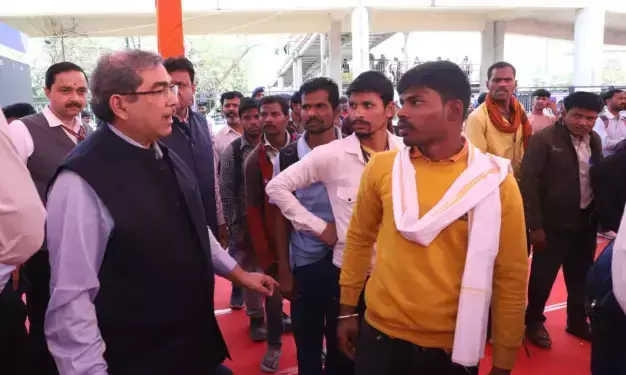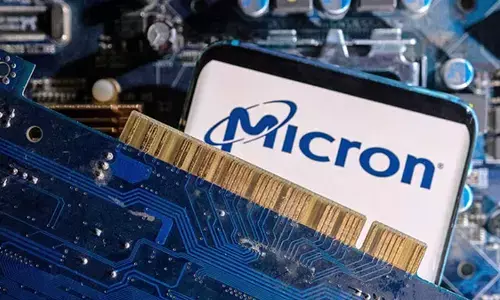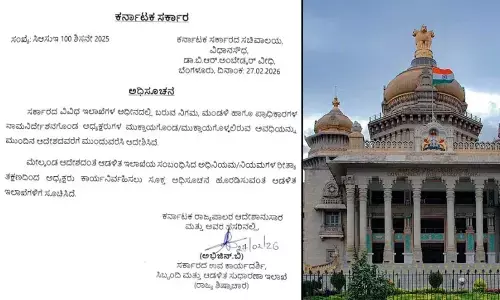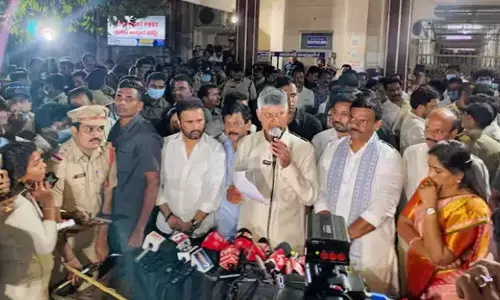CM Siddaramaiah budget gift Rs 45,000 cr for Brand Bengaluru
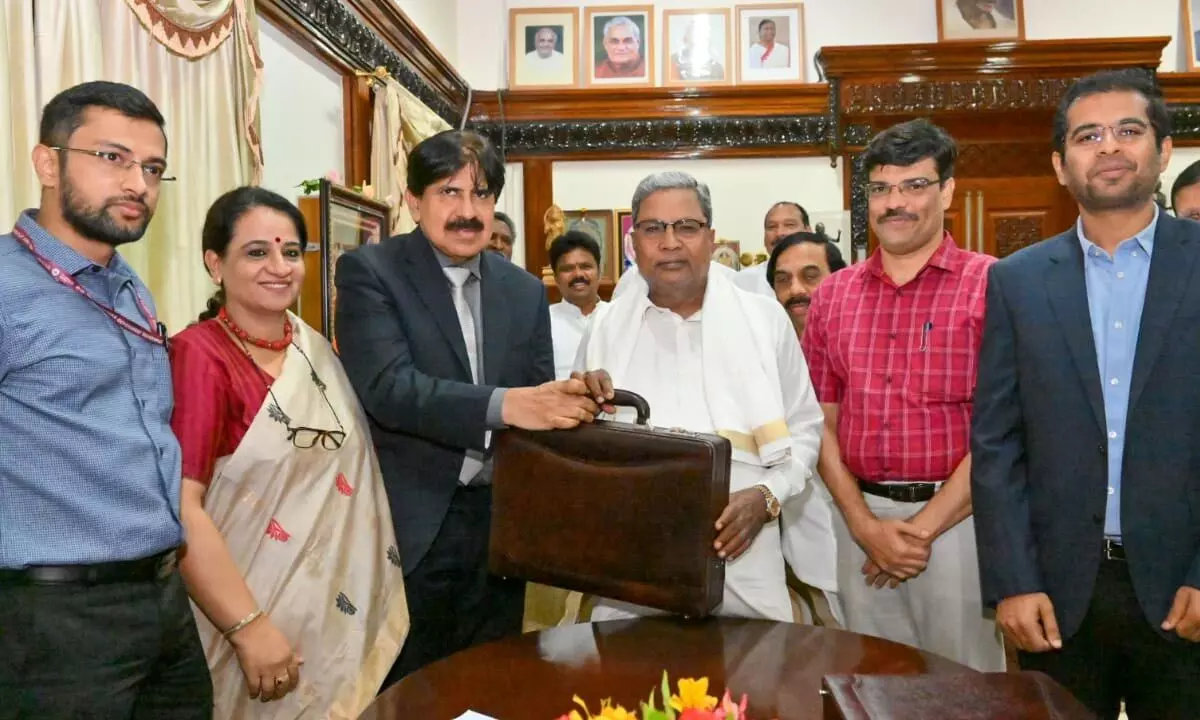
The Chief Minister Siddaramaiah has announced a total grant of Rs 45,000 crore for Bengaluru in Karnataka Budget 2023.
BENGALURU: The Chief Minister Siddaramaiah has announced a total grant of Rs 45,000 crore for Bengaluru in Karnataka Budget 2023. He has broken the record of Ramakrishna Hegde, by presenting his 14th budget. While presenting the first state Budget of the Congress government, Siddaramaiah said that focus is on providing relief for inflation-affected citizens via guarantee schemes. “Our five guarantees will transfer Rs 52,000 crore to more than once crore families,” he said, adding that this is as per the concept of Universal Basic Income, which, he claimed, is being implemented for the first time in the country.
More grants have been announced to give priority to Brand Bengaluru. He has announced grants for white topping, road development, urban upliftment, water maintenance, clearing and repair of Rajakaluve. He has also earmarked money for Metro and Bangalore Suburban Railway projects.
CM's budget speech for Urban Development
During the previous tenure of our government special emphasis was given to Urban Development by implementation of several schemes such as Nagarotthana and Indira Canteens. Unfortunately, these pro-people programs were neglected by the previous government and there was a gradual decline in urban infrastructure and civic amenities.
In addition, the previous government has left a huge liability of Rs 45,000 crore worth of incomplete works and pending payments in 2022-23. Given the present allocation in the budget for urban development, it will take at least 6-8 years to come out of this liability. This reckless fiscal profligacy is a clear reflection of their financial indiscipline and indiscretion. Nevertheless, our government will take all the necessary measures required for the development of the cities.
Approximately Rs 12,000 crore is being spent through various schemes such as Amruta Nagarotthana, High-Density Corridor, road white-topping, solid waste management, encroachment removal and repairs of canals (Rajakaluves), filling of potholes etc., for the development of infrastructure of Bengaluru city. Additionally, for reducing traffic congestion Namma Metro and Bengaluru Suburban Railway Project are being implemented at an estimated cost of Rs 30,000 crores. These projects will require at least five years for completion. Despite taking up so many project worth thousands of crores, it is unfortunate that the city’s infrastructure continues to crumble and is unable to keep pace with the rising aspirations of the people. This is a result of the previous government’s lack of commitment, widespread corruption and mismanagement of resources.
“Brand Bengaluru” theme is centered on safety and convenience of the residents of Bengaluru city. The Brand Bengaluru theme is focused on addressing the nine major challenges facing the city namely, traffic management, environment, solid waste management, proper utilization of public places, public health, animal health, people friendly e-Governance, water security and flood management. By addressing these challenges in a planned and scientific manner we will elevate Bengaluru to international standards.
Bengaluru Water Supply and Sewerage Board (BWSSB) will upgrade 20 Sewage Treatment Plants by March, 2026 at a cost of Rs.1,411 crore. BWSSB will execute this project using their own funds. Once completed, this projects will ensure sustainable management of water supply and protection of natural ecosystem in BBMP limits.
There is no good metro or road connectivity to Sir M Visveswaraya Terminal constructed by the South Western Railways near Baiyyappanahalli in Bengaluru. This has caused inconvenience to lakhs of commuters and led to severe traffic congestion in the area. To address this problem, a new flyover will be constructed at the cost of Rs 263 crore.
Approximately 190 km roads were converted into white-topped roads by our government in 2016-17 and 2017-18 and these are still in a very good condition. Subsequently, no white topping work was taken up by the previous government. This project will be restarted in the year 2023-24. 100 kms of major roads will be developed as white-topped roads at a cost of Rs.800 crore. This will prevent the need for repeated repair of roads.
In 2016, 12 major roads of Bengaluru with a total length of 192 km having very high traffic congestion were designated as High-Density Corridors. Out of this, 92 km roads have already been developed and upgraded to ensure smooth flow of traffic. In 2023-24, 83 km length of such roads will be developed at a cost of Rs. 273 crore.
Bengaluru Peripheral Ring Road which was designed to ease traffic congestion in Bengaluru city is lying on the backburner since the last 15 years. The technical issues of the Peripheral Ring Road have been cleared as Supreme Court has given consent on 25.11.2021. Now our government will resolve all legal hurdles and make sincere efforts to implement the project expeditiously.
Encroachment of storm water drain (Rajakaluves) has hindered smooth flow of storm water in Bengaluru. This is leading not only to floods but also to mishaps due to water from waterlogged roads entering people’s homes. Action will now be taken on priority to resolve this issue by vacating the encroachments identified by the Revenue Department.
Our government will give priority to scientific disposal of waste in Bengaluru city. Legacy waste of 97 lakh tons will be treated through bio-mining and bio-remediation and in the coming 5 years, 256 acres of land will be converted into parks in Bengaluru city.
Namma Metro, with a network of around 70 km and used by around 5.7 lakhs commuters daily, is the second largest metro network in the country. In the current year, the metro lines will be expanded from Baiyyappanahalli to Krishnarajapura, Kengeri to Challaghatta, Nagasandra to Madawara, R V Road to Bommasandra. The total addition of new lines by the end of 2024 will be 27 km. Further, in the next three years, the metro network will be increased from 70 km to 176 km i.e., 2.5 times the present network coverage. The ongoing work of the airport metro line will be expedited and it will be operationalized by 2026.
A Detailed Project Report has been submitted to the Central government for approval of Metro Phase-III at a cost of Rs 16,328 crore. This project encompasses a total length of 45 km starting from Kempapura to J.P Nagar 4th Phase and from Hosahalli to Kadabagere, including western ORR line. In addition, a new proposal to construct a new metro line of 37 km, from Hebbala to Sarjapura, at an estimated cost of Rs. 15,000 crore, will be submitted to government of India for approval.
The so-called double engine government has failed to implement the Bengaluru Suburban Rail Project, an ambitious project formulated to ease traffic congestion in Bengaluru City. This has just remained a budget announcement for many years. The total allocation for this project is 15,767 crore, out of which Rs 3,242 crore is central share, Rs 5,087 crore is state share and the loan component (external sources) is Rs 7,438 crore. The central government has released Rs 500 crore till date and the state government has released Rs 660 crore. For the current year, state government has provided Rs 1,000 crore.
We will allocate Rs 3,400 crore for effective disposal of legacy waste, liquid waste management and to control the flow of pollutants into rivers and lakes. The project will prioritize adoption of modern systems of processing drainage water. Out of the total allocation, Rs 1,250 crore is provided for Bengaluru city and Rs 2,150 crore for other urban local bodies.
Swachh Bharat 2.0, a centrally sponsored scheme, is being implemented in a cost sharing pattern between the center and state. An action plan has been approved for 314 urban local bodies including BBMP with an outlay of Rs 4,500 crore. The government of India share is Rs 1,900 crore and the total share of government of Karnataka and Urban Local Bodies is Rs 2,600 crore. Under this project sustainable solid waste management and used water management works will be undertaken.
Amrut 2.0 project, a centrally sponsored scheme, is being implemented with the objective of supplying clean drinking water and conservation of water bodies. The total project cost is Rs 9,230 crore. This includes the government of India share of Rs. 4,615 crore and Rs. 4,612 crore share of government of Karnataka and Urban Local bodies. This project is being executed in 287 towns with a population of less than one lakh. A total of Rs 800 crore is allocated for this scheme in the current year.
Indira Canteens were started during our previous tenure with the objective of providing breakfast, lunch and dinner at a very affordable price to the poor and working class. Although it was a very successful scheme, the previous government did not show any conviction to continue the project and denied the benefits of the scheme to the poor. Now, in Phase-1, with a new menu, Indira Canteen scheme will be relaunched in BBMP and all other urban local bodies of the state. This scheme will be further extended to all newly created towns and new wards of BBMP in phase-2. For the current year, Rs 100 crore will be earmarked by the state government for repair, renovation and maintenance of these canteens.
Bengaluru Solid Waste Management Corporation Limited (BSWMCL) has been established to collect, treat and dispose waste in a scientific and sustainable manner. Rs.100 crore is provided for the effective operation of this corporation.


